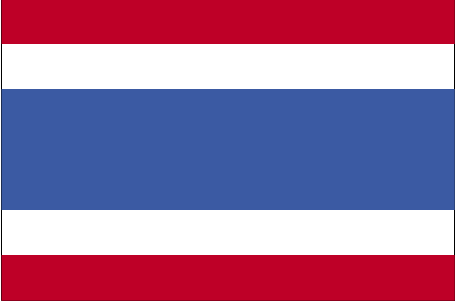Search
- Page Path
- HOME > Search
Research articles
-
Medical students’ self-assessed efficacy and satisfaction with training on endotracheal intubation and central venous catheterization with smart glasses in Taiwan: a non-equivalent control-group pre- and post-test study

-
Yu-Fan Lin
 , Chien-Ying Wang
, Chien-Ying Wang , Yen-Hsun Huang
, Yen-Hsun Huang , Sheng-Min Lin
, Sheng-Min Lin , Ying-Ying Yang
, Ying-Ying Yang
- J Educ Eval Health Prof. 2022;19:25. Published online September 2, 2022
- DOI: https://doi.org/10.3352/jeehp.2022.19.25
- 3,043 View
- 227 Download
- 1 Web of Science
- 1 Crossref
-
 Abstract
Abstract
 PDF
PDF Supplementary Material
Supplementary Material - Purpose
Endotracheal intubation and central venous catheterization are essential procedures in clinical practice. Simulation-based technology such as smart glasses has been used to facilitate medical students’ training on these procedures. We investigated medical students’ self-assessed efficacy and satisfaction regarding the practice and training of these procedures with smart glasses in Taiwan.
Methods
This observational study enrolled 145 medical students in the 5th and 6th years participating in clerkships at Taipei Veterans General Hospital between October 2020 and December 2021. Students were divided into the smart glasses or the control group and received training at a workshop. The primary outcomes included students’ pre- and post-intervention scores for self-assessed efficacy and satisfaction with the training tool, instructor’s teaching, and the workshop.
Results
The pre-intervention scores for self-assessed efficacy of 5th- and 6th-year medical students in endotracheal intubation and central venous catheterization procedures showed no significant difference. The post-intervention score of self-assessed efficacy in the smart glasses group was better than that of the control group. Moreover, 6th-year medical students in the smart glasses group showed higher satisfaction with the training tool, instructor’s teaching, and workshop than those in the control group.
Conclusion
Smart glasses served as a suitable simulation tool for endotracheal intubation and central venous catheterization procedures training in medical students. Medical students practicing with smart glasses showed improved self-assessed efficacy and higher satisfaction with training, especially for procedural steps in a space-limited field. Simulation training on procedural skills with smart glasses in 5th-year medical students may be adjusted to improve their satisfaction. -
Citations
Citations to this article as recorded by- The use of smart glasses in nursing education: A scoping review
Charlotte Romare, Lisa Skär
Nurse Education in Practice.2023; 73: 103824. CrossRef
- The use of smart glasses in nursing education: A scoping review
-
No difference in learning outcomes and usability between using controllers and hand tracking during a virtual reality endotracheal intubation training for medical students in Thailand

-
Chaowanan Khundam
 , Naparat Sukkriang
, Naparat Sukkriang , Frédéric Noël
, Frédéric Noël
- J Educ Eval Health Prof. 2021;18:22. Published online August 18, 2021
- DOI: https://doi.org/10.3352/jeehp.2021.18.22
- 5,190 View
- 350 Download
- 6 Web of Science
- 7 Crossref
-
 Abstract
Abstract
 PDF
PDF Supplementary Material
Supplementary Material - Purpose
We developed a virtual reality (VR) endotracheal intubation training that applied 2 interaction modalities (hand-tracking or controllersIt aimed to investigatedthe differences of usuability between using hand tracking and controllers during the VR intervention for intubation training for medical students from February 2021 to March 2021 in Thailand.
Methods
Forty-five participants were divided into 3 groups: video only, video with VR controller training, and video with VR hand tracking training. Pre-test, post-test, and practice scores were used to assess learning outcomes. The System Usability Scale (SUS) and User Satisfaction Evaluation Questionnaire (USEQ) questionnaires were used to evaluate the differences between the VR groups. The sample comprised 45 medical students (undergraduate) who were taking part in clinical training at Walailak University in Thailand.
Results
The overall learning outcomes of both VR groups were better than those of the video group. The post-test scores (P=0.581) and practice scores (P=0.168) of both VR groups were not significantly different. Similarly, no significant between-group differences were found in the SUS scores (P=0.588) or in any aspects of the USEQ scores.
Conclusion
VR enhanced medical training. Interactions using hand tracking or controllers were not significantly different in terms of the outcomes measured in this study. The results and interviews provided a better understanding of support learning and training, which will be further improved and developed to create a self-learning VR medical training system in the future. -
Citations
Citations to this article as recorded by- Do Cone Beam CT Picture Archiving and Communication Systems Viewer Interfaces Meet the Expectations of Dental Professionals From a Usability Perspective?
Yaren Dogan, Yigit Sirin
Cureus.2024;[Epub] CrossRef - Virtual reality and augmented reality in medical education: an umbrella review
Talia Tene, Diego Fabián Vique López, Paulina Elizabeth Valverde Aguirre, Luz María Orna Puente, Cristian Vacacela Gomez
Frontiers in Digital Health.2024;[Epub] CrossRef - Influence of Hand Tracking in Immersive Virtual Reality for Memory Assessment
José Varela-Aldás, Jorge Buele, Irene López, Guillermo Palacios-Navarro
International Journal of Environmental Research and Public Health.2023; 20(5): 4609. CrossRef - AR/VR Teaching-Learning Experiences in Higher Education Institutions (HEI): A Systematic Literature Review
Belen Bermejo, Carlos Juiz, David Cortes, Jeroen Oskam, Teemu Moilanen, Jouko Loijas, Praneschen Govender, Jennifer Hussey, Alexander Lennart Schmidt, Ralf Burbach, Daniel King, Colin O'Connor, Davin Dunlea
Informatics.2023; 10(2): 45. CrossRef - Application and challenges of a metaverse in medicine
Yingshu Wang, Congcong Li, Lai Qu, Hongfei Cai, Yingying Ge
Frontiers in Robotics and AI.2023;[Epub] CrossRef - Application of computer-based testing in the Korean Medical Licensing Examination, the emergence of the metaverse in medical education, journal metrics and statistics, and appreciation to reviewers and volunteers
Sun Huh
Journal of Educational Evaluation for Health Professions.2022; 19: 2. CrossRef - Virtual Simulation in Undergraduate Medical Education: A Scoping Review of Recent Practice
Qingming Wu, Yubin Wang, Lili Lu, Yong Chen, Hui Long, Jun Wang
Frontiers in Medicine.2022;[Epub] CrossRef
- Do Cone Beam CT Picture Archiving and Communication Systems Viewer Interfaces Meet the Expectations of Dental Professionals From a Usability Perspective?

 KHPLEI
KHPLEI

 First
First Prev
Prev



